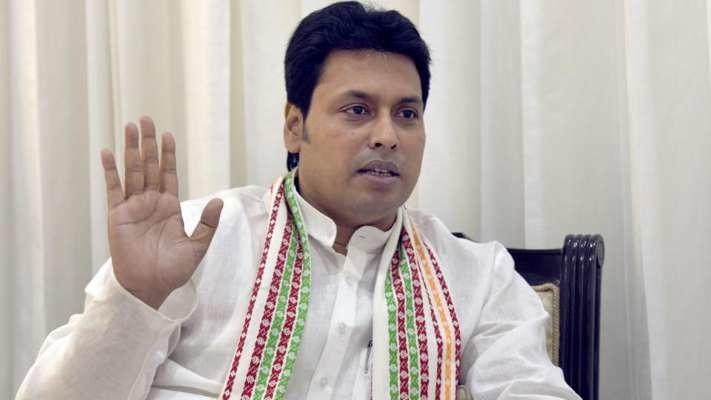NRC Demand in Tripura: Do The Tribal Parties Have A New Political Weapon?

Himanta Biswa Sarma, the Bharatiya Janata Party's (BJP) deal maker for the Northeast, said that Tripura does not need a National Register of Citizens (NRC) at a press meet in Agartala on Friday. The demand for an NRC exercise in Tripura is heralded by three Tribal based political groups; the Indigenous Nationalist Party of Tripura (INPT), National Conference of Tripura (NCT) and the BJP's ally, the Indigenous People's Front of Tripura (IPFT). Sarma reportedly told the press; “Going by the demography of Tripura, I don't think there is a huge requirement. Assam's demography has changed. NRC revision is being done as per the Assam Accord. But in Tripura, there is no accord.” This statement is problematic as Sarma's former party, the Congress, has claimed credit for the NRC in Assam and denied it being part and parcel of the Assam Accord. The other problem is that unlike Assam, the demographic changes that Tripura experienced both in the pre and post partition period are larger than anything that took place in Assam.
Also read: Other States Too Are Demanding an NRC
A common refrain in Assam's linguistic and ethnic politics has been the 'example' of Tripura where the tribal population has been reduced to a 'voiceless' minority. This has even been reiterated by the Krishak Mukti Sangram Samiti (KMSS). With the final draft NRC excluding around 40 lakh people, their fate as citizens remains hanging till the final register.
Tripura has had a tortuous history with regard to its ethnic relations. Under the Manikya kings, Tripura turned into a Vaishnavite Hindu kingdom in 1470 CE. During this time, Bengali was declared as the state language. The tribal people, too, were encouraged to give up their earlier belief systems in favour of Vaishnavism. This was also the time when Bengali settlers were encouraged to inhabit the plains around Agartala as they were settled cultivators as opposed to the hill people who practised jhum cultivation. The king's plan was to have an easy source of revenue. This process continued throughout the period of British colonialism, as Tripura like many other kingdoms had entered into a subsidiary with the British.
By the time Tripura became a part of India, the tribal population had experienced a drastic shift from almost 51 per cent of the total population to a little under 37 per cent of the state's population. This trend continued till the 1960s when the tribal population touched a new low of 31.5 per cent. On one hand, these figures may not be completely accurate as at the time census officials were not adequately trained, nor was a definitive methodology in place. However, what is not denied is that during the time of partition, there was a heavy migration of Bengali speakers into the state from what was then to become East Pakistan.
However, at around the same time, Left politics was popular among the tribal people. They promoted literacy and the kok-borok language. The king's crackdowns on the communist movement also endeared the Left to the tribal population. Perhaps the biggest chance was missed when the Left first came to power in 1978, and the principal leader of the party in the state, Biren Dutta pleaded with the state committee to make the firebrand tribal leader Dasharath Deb, the Chief Minister. However, he was passed up for Nripen Chakrabarty. Though Dasharath Deb would later serve as Chief Minister for four years in 1993, the ethnic movement had already begun.
It was during the course of the 1977 elections that the Tripura Upajati Juba Samiti (TUJS) was formed. They embodied the growing tribal angst against a sizeable outsider presence perceived in their homeland. However, they were routed by the Left. Later, the more militant minded of the TUJS formed the Tripura National Volunteers (TNV). The TNV took up an armed struggle for 'Twipraland', a separate state comprising of the tribal dominated districts of the state.
In 1998, following the Left's defeat and a new Congress government being sworn in, the TNV came out of the jungles to sign a mockery of an Accord. The Accord made no concessions towards the tribal people. It also turned out that the elections were engineered by the Congress and that the TNV participated in the elections by intimidating Left candidates. The TNV's surrender exposed the hollowness of their cause as the Left had already ensured that the tribal people had Autonomous District Councils (ADC). The only thing to trump the ADCs would have been statehood.
Also read: Playing With Fire: The BJP May Have to Watch the Northeast Burn
The statehood demand has been a pressing issue for the tribal people since then. The various tribal oriented political groups have all demanded statehood. Even after the IPFT formed the government with the BJP this year, their leaders including ministers have reiterated the statehood demand. However, this is the first time the tribal parties have demanded an NRC. What makes this significant is that it illustrates what has been a cause for ethnic mobilisation in the state, the perception of being rendered a minority in one's homeland. Perhaps it was the advent of literacy brought by the Left when they first worked with the hill people that led to the thoughts of self-determination. Or perhaps given the politics the Northeast has long experienced, this outcome would have been inevitable. What is true is that the tribal parties in the state have a new political weapon.
Get the latest reports & analysis with people's perspective on Protests, movements & deep analytical videos, discussions of the current affairs in your Telegram app. Subscribe to NewsClick's Telegram channel & get Real-Time updates on stories, as they get published on our website.
























